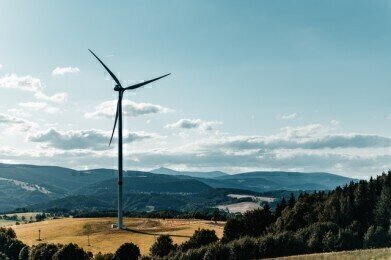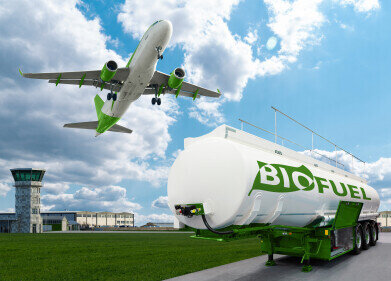Biofuel Industry News
What is the Energy Transition?
Jul 21 2022
From rising sea levels and melting glaciers to an increase in fires, floods and droughts, climate change is a global issue. Fossil fuel energy sources are a key driver of climate change, with greenhouse gases from human activity increasing global temperatures at an alarming rate.
In a recent report published by the Intergovernmental Panel on Climate Change (IPCC), scientists confirm that heat-trapping gases such as CO2 have increased average global temperatures by 1.1 degrees Celsius since 1750. Within the coming decades, this figure is set to jump to 1.5 degrees Celsius.
“Increasing magnitudes of warming increase the likelihood of severe, pervasive, and irreversible impacts,” warns the IPCC.
Addressing the climate crisis
International treaties like the Paris Agreement are designed to address the crisis, slow global warming and achieve net zero emissions by 2050. Replacing fossil fuels with renewable, climate-friendly energy sources will play a critical role in reaching this goal. The shift is called the energy transition and it has wide-reaching implications for global economies, governments and communities.
The International Renewable Energy Agency (IRENA), an intergovernmental organisation established to support countries as they move towards sustainable energy sources, defines the energy transition as “a pathway toward transformation of the global energy sector from fossil-based to zero-carbon by the second half of this century.” Slashing CO2 emissions is the core goal of the energy transition.
Measuring energy transition progress
In a study published by industry insights company Deloitte, the authors maintain energy transition progress can be measured using six parameters:
-
Decarbonising current energy sources
Enormous progress has already been made when it comes to the decarbonisation of current energy sources. More than 90% of oil and gas industry executives surveyed in the Deloitte study confirmed they are taking major steps to decarbonise. An increasing number of companies are also making the switch to renewable power, as opposed to power generated by coal.
-
Decreasing energy consumption
Steps like proactively monitoring energy usage, upgrading outdated equipment and installing energy-efficient lighting, heating and cooling systems are helping to increase efficiency and drive the energy transition.
-
Encouraging clean energy investment
Investment in clean energy is on the rise, with global rates spiking from US$195 billion to US$363 billion over the past 10 years.
-
Developing new energy technologies
From solar storage projects to electric batteries, new technologies will play a pivotal role in driving the energy transition. New sustainable aviation fuel (SAF) technologies are set to drive change in the aviation sector and help decarbonise the skies.
-
Introducing energy-related mandates
Around the world, governments are introducing new policies designed to accelerate the energy transition.
-
Meeting the needs of consumers and shareholders
Demand for clean energy is on the rise and companies are responding to calls for consumers and shareholders. The challenge is making the switch to low-carbon alternatives, without a drastic impact on profits.
Want to know more about the energy transition? We cover all bases, including the latest climate-conscious biofuel projects, in ‘Energy Transition Guide - Fossil-based to Biobased Energy Sources’.
Digital Edition
PIN 25.3 June/July
June 2024
Analytical Instrumentation - Recent Advances In Various Bench Scale Accelerated Oxidative Testing Methods For Fuels - Petrochemical Industry: Anton Paar Solutions Streamline Processes, Reduce H...
View all digital editions
Events
Jul 30 2024 Jakarta, Indonesia
Jul 30 2024 Jakarta, Indonesia
China Energy Summit & Exhibition
Jul 31 2024 Beijing, China
Jul 31 2024 Chengdu, China
Aug 05 2024 Moon Township, PA, USA


















